Vietnam: To return inmates' property to their relatives if requested
In case an inmate has valuable property, money or things, will the detention facility return them to the inmate's relatives? - Hong Thinh (Gia Lai, Vietnam)
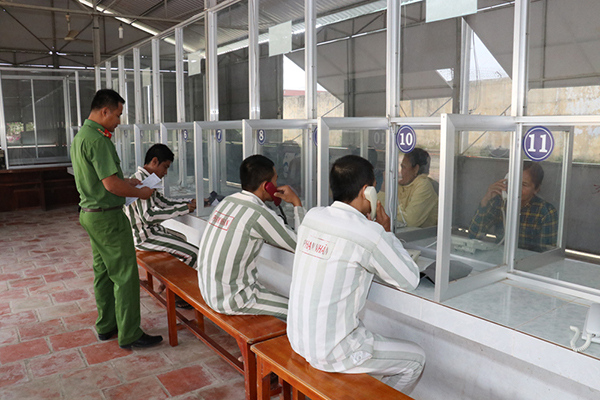
Vietnam: To return inmates' property to their relatives if requested (Internet image)
The Minister of National Defense of Vietnam promulgates Circular 89/2022/TT-BQP dated December 6, 2022, on the internal regulations of inmate detention facilities.
1. The property will be returned to the inmate's relatives if requested in Vietnam
According to Article 7 of Circular 89/2022/TT-BQP, inmate's personal belongings are prescribed as follows:
Assets such as gold, silver, foreign currencies, Vietnamese currency, stocks, bills, bonds, bank cards, watches, and jewelry; machinery and equipment (except for medical equipment to ensure the health of inmates as prescribed by a doctor or a competent medical facility); citizen identification, people's identity cards, household registration, passports, diplomas, and certificates; Other valuable papers, clothes, and personal belongings (not issued by the detention facility) must be deposited with the inmate detention facility.
If the inmate wishes, the inmate detention facility can hand over the above property to the inmate's relatives.
(except for the inmate's citizen identity card, people's identity card, passport, and health insurance card to exercise the inmate's rights as prescribed by law).
Thus, aside from the inmate's citizen's identity card, other people's identity cards, passports, and health insurance cards, other valuable properties can still be handed over to the inmate's relatives if the inmate so desires.
Furthermore, inmates are permitted to use and be housed in cells:
- Clothes, blankets, mosquito nets, mats, face towels, and slippers provided by the detention facility; and one personal cloth pillow, toothbrush, toothpaste, plastic cup, and plastic comb; censored paintings, photos, books, and newspapers; white paper; prescription glasses with plastic frames; medicines, and medical equipment prescribed by a doctor or a competent medical facility;
- Plastic hairpins; feminine toiletries (female inmates);
- Children's daily necessities (if there are children living with their mothers in detention facilities) and Styrofoam containers as prescribed.
Personal belongings and utensils must be arranged neatly, cleaned, and stored in the right place.
Note: Inmates are only allowed to wear pants and shirts issued by the inmate detention facility. Pants and clothing worn by inmates (except underwear and bras) with the words "INMATE" printed on the front of the pants and the back of the shirt; the name and the last 7 digits of the inmate's file are printed on the left chest of the shirt.When meeting officials, participating in collective activities, labor, vocational training, and entering and exiting the gate of the inmate detention facility or detention area, inmates must wear neat and clean long clothes; when allowed to meet relatives or interact with guests or outsiders, male inmates must cut their hair short, and female inmates must keep their hair neat.
When working in the rain, the inmate can use a raincoat according to the uniform form of the inmate detention facility.
2. Regulations on living, studying, working, and vocational training regime for inmates in Vietnam
According to Article 8 of Circular 89/2022/TT-BQP, inmates' daily lives, studies, work, and apprenticeships are regulated as follows:
- Inmates must respect and voluntarily practice a civilized lifestyle, including living, studying, and working in order and under strict discipline.
Strictly comply with regulations on time, commands, and holidays in daily life: study, labor, sleep, cultural activities, art, physical training, sports, and entertainment; male inmates must cut their hair short; female inmates must keep their hair neat; and strictly abide by the management, inspection, control, attendance, and daily inspection.
When there is an order to assemble, they must quickly line up in groups (teams), wear neat clothes, and keep order. In the event of an alarm or an unexpected incident, the officer's orders and instructions must be strictly followed.
- Inmates work or learn vocational skills at the right places, strictly abide by regulations on occupational safety and hygiene, actively work or learn jobs under the guidance of officials, and do not interfere with other people's work.
Inmates are responsible for protecting the detention facility's property, as well as their own and that of others; they should promptly report acts of infringement on such property to the inmate detention facility's staff.Inmates who are sick or ill, with the designation and certification of the medical staff, are entitled to leave from work.
- Strictly follow the instructions of officials when participating in programs and activities of education, study, culture, art, physical training, sports, and entertainment.
- In addition to time for educational, study, labor, and general activities, religious inmates may use a printed, legally published, or distributed scripture once a week.
Religious inmates register with the detention facility to use scriptures and express their personal beliefs and religion at a place and time specified by the inmate detention facility without affecting others. Inmate detention facilities are responsible for managing and censoring scriptures before allowing them to be used by inmates.
Vietnam's Circular 89/2022/TT-BQP takes effect on January 25, 2023.
Nhu Mai
- Key word:
- inmates in Vietnam
- inmates
- Number of deputy directors of departments in Vietnam in accordance with Decree 45/2025/ND-CP
- Cases ineligible for pardon in Vietnam in 2025
- Decree 50/2025 amending Decree 151/2017 on the management of public assets in Vietnam
- Circular 07/2025 amending Circular 02/2022 on the Law on Environmental Protection in Vietnam
- Adjustment to the organizational structure of the Ministry of Health of Vietnam: Certain agencies are no longer listed in the organizational structure
- Vietnam aims to welcome 22-23 million international tourists in Vietnam in 2025
-

- Guidance on organizing educational programs for ...
- 10:00, 10/10/2024
-
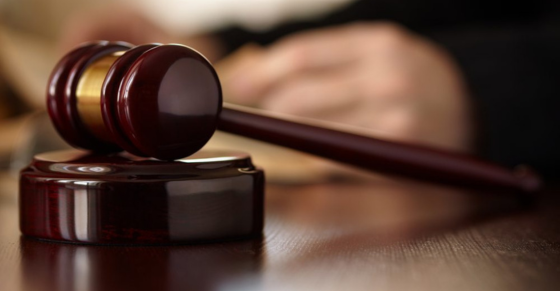
- Guidance on organizing educational programs for ...
- 09:30, 10/10/2024
-
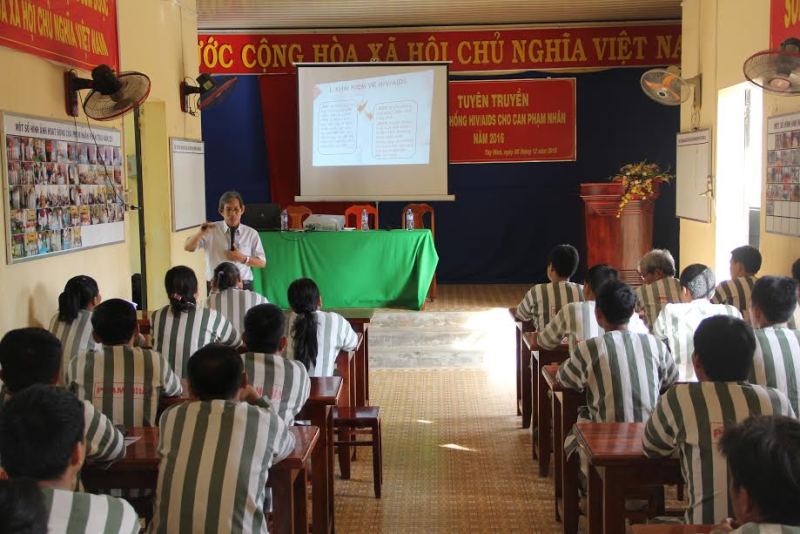
- Guidance on determining inmate's performance grade ...
- 18:00, 09/10/2024
-
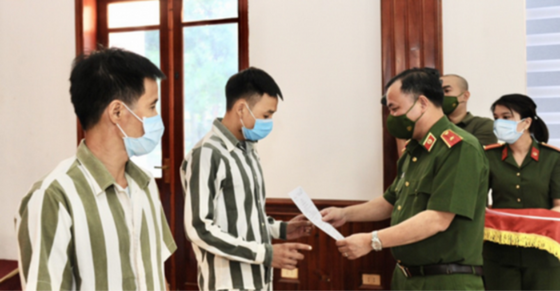
- Regulations on cultural education for inmates ...
- 18:00, 08/10/2024
-
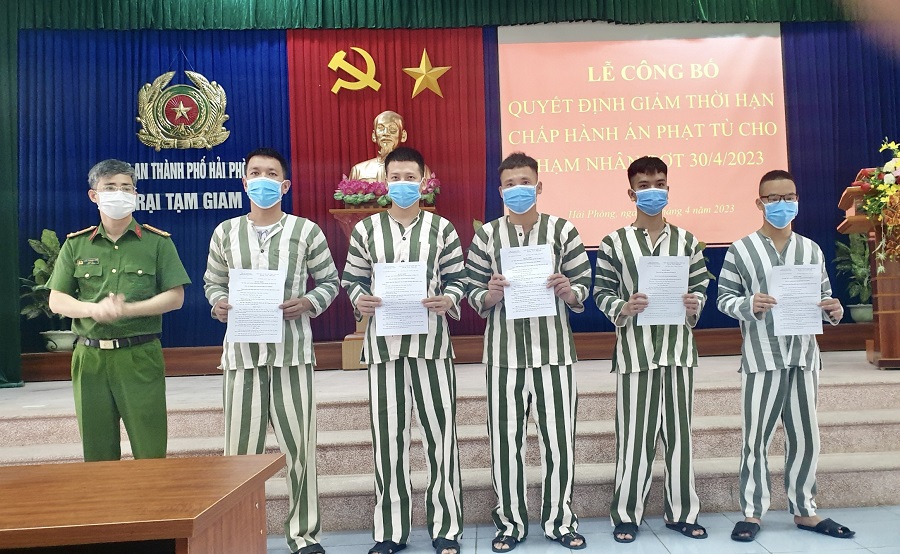
- Regime for medical care for inmates in Vietnam ...
- 17:10, 08/10/2024
-

- Notable new policies of Vietnam effective as of ...
- 16:26, 11/04/2025
-
.Medium.png)
- Notable documents of Vietnam in the previous week ...
- 16:21, 11/04/2025
-
.Medium.png)
- Notable documents of Vietnam in the previous week ...
- 16:11, 02/04/2025
-
.Medium.png)
- Notable new policies of Vietnam to be effective ...
- 16:04, 02/04/2025
-
.Medium.png)
- Notable new policies of Vietnam effective from ...
- 14:51, 21/03/2025
 Article table of contents
Article table of contents
